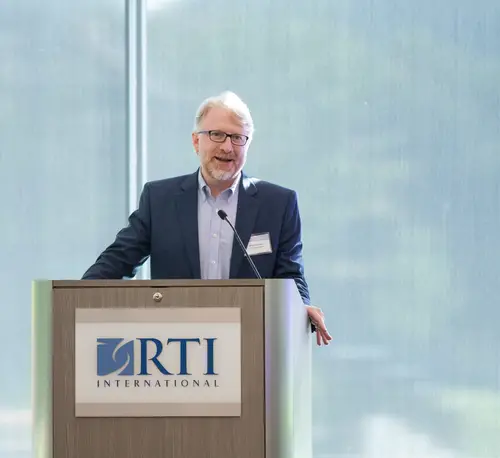Brian G. Southwell
Distinguished Fellow

Distinguished Fellow
PhD, Communication, University of Pennsylvania
MA, Communication, University of Pennsylvania
BA, Rhetoric and Communication Studies/Government, University of Virginia

As a non-profit organization founded by universities, RTI International does work which improves the world. As a family of people who care about doing rigorous work while also helping each other as human beings, RTI has offered a great home for me as I have attempted to connect communities and organizations during my career.
To speak to this expert or inquire about RTI services, you can reach us at +1 919 541 6000 or use the contact form below. For media inquiries, please reach out to our Media Relations team at news@rti.org.
